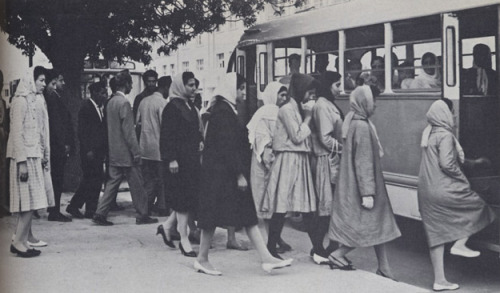Perhaps because it did not conform to Oh Dearism, it was mentioned in a very few mainstream publications. These are the Guardian, Le Monde, Al Jazeera and the UK Times links.
 According to documents found by the magazine, Samir Abd Muhammad al-Khlifawi, a colonel in Jihaz Al-Mukhabarat al Amma or Iraqi Intelligence Service under Saddam was the brains behind ISIS.
According to documents found by the magazine, Samir Abd Muhammad al-Khlifawi, a colonel in Jihaz Al-Mukhabarat al Amma or Iraqi Intelligence Service under Saddam was the brains behind ISIS.His nom de guerre was Haji Bakr. My Turkish readers will smile. That is him when he was working for Saddam.
For once, the term 'brains behind" is not a cliche: It looks like Haji Bakr conceptualized the structure of the organization, devised its main strategy, recruited its leader and managed its operations.
Officially he served as the head of ISIL’s military council and was leader Abu Bakr al-Baghdadi's top deputy in Syria.
Papers found in his house after his death seem to prove though that he and fellow former intelligence officers were the actual leaders behind al-Baghdadi, and that Khlifawi was the one who has devised the meticulous plans for ISIL's conquests and administration of territory in Syria and Iraq.If you are a regular reader of this blog, you are already familiar with the history behind this.
 After the American Consul Paul Bremer disbanded Saddam's army, top Baath officials and army officer formed a resistance movement based on Sunni tribes in Iraqi heartlands.
After the American Consul Paul Bremer disbanded Saddam's army, top Baath officials and army officer formed a resistance movement based on Sunni tribes in Iraqi heartlands.Remember the bloody fight for Fallujah? That was them.
When the Americans bribed the Sunni tribes to stop fighting, they managed to detain some the the leaders of the insurgency and they kept them at an infamous facility known as Camp Bucca.
Haji Bakr met the future leader of ISIS, the current Caliph and Commander of the Faithful, Al-Baghdadi at that facility and recruited him as the face of the organization.
In 2010, Bakr and a small group of former Iraqi intelligence officers made Abu Bakr al-Baghdadi, the emir and later "caliph," the official leader of the Islamic State. They reasoned that Baghdadi, an educated cleric, would give the group a religious face.Beyond recruiting Baghdadi, as the head of ISIS' military council, he ensured that the future Caliph's position was unchallenged within the organization.
Al-Khlifawi played an influential role in Abu Bakr al-Baghdadi becoming the next ISI leader, and reportedly organized an internal purge, including scores of assassinations, in order to solidify al-Baghdadi's control of the group.Haji Bakr was shot in Syria by some rebel forces who did not know who he was. They found his papers and sold them to Der Spiegel.
They included this handwritten blueprint for the new Sunni state (the country I dubbed Pipelineistan).
Here is the actual structure
The Der Spiegel article narrates how ISIS members moved to each town many months ahead of the final battle to map out the political and economic elite, to find out secrets about them to be used against them and to eliminate future opponents in targeted assassinations.
It outlines how the structure devised by Haji Bakr was an exact duplicate of Saddam's Republic of Fear.
It seemed as if George Orwell had been the model for this spawn of paranoid surveillance. But it was much simpler than that. Bakr was merely modifying what he had learned in the past: Saddam Hussein's omnipresent security apparatus, in which no one, not even generals in the intelligence service, could be certain they weren't being spied on.Read the whole thing. It is worth it.
It explains how ISIS created partnerships with Bashar Al-Assad when it was convenient and how it betrayed fellow Islamists and Al Assad when it was expedient.
 As I have long suspected, it is a thoroughly cynical organization.
As I have long suspected, it is a thoroughly cynical organization.Christopher Reuter notes that when Haji Bakr was accidentally shot by another rebel group in Syria who did not know who he was, there was not a single Koran in his house.
Interestingly, this is how he looked at the time.
And perhaps more interestingly, The Times of London used this photo to tell his story.
But to me, this is the key point of the piece:
Attempts to explain IS and its rapid rise to power vary depending on who is doing the explaining. Terrorism experts view IS as an al-Qaida offshoot and attribute the absence of spectacular attacks to date to what they view as a lack of organizational capacity. Criminologists see IS as a mafia-like holding company out to maximize profit. Scholars in the humanities point to the apocalyptic statements by the IS media department, its glorification of death and the belief that Islamic State is involved in a holy mission.Therefore and more importantly,
But apocalyptic visions alone are not enough to capture cities and take over countries. Terrorists don't establish countries. And a criminal cartel is unlikely to generate enthusiasm among supporters around the world, who are willing to give up their lives to travel to the "Caliphate" and potentially their deaths.
IS has little in common with predecessors like al-Qaida aside from its jihadist label. There is essentially nothing religious in its actions, its strategic planning, its unscrupulous changing of alliances and its precisely implemented propaganda narratives. Faith, even in its most extreme form, is just one of many means to an end. Islamic State's only constant maxim is the expansion of power at any price.This is why I said that the Atlantic article about the real Caliph was inane rubbish.
And this is why I posted this piece about intelligence services.
But sadly nobody read it.
I assume it created too much cognitive dissonance with "Oh Dearism" on ISIS.










